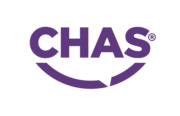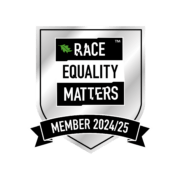Together practitioner invited to Downing Street to meet the Prime Minister for work with gangs and young adults
Together for Mental Wellbeing are excited to announce that Deji Maxwell who is a Forensic Mental Health Practitioner at Together and also a member of the Southwark Anti-Violence Unit (SAVU) has been invited to meet the Prime Minister on 15 July 2019. Deji’s visit to Downing Street is to commemorate the work he has carried out with Together and SAVU on gangs and young people and we caught up with him to find out more:
Could you tell us a bit about the Southwark Anti-Violence Unit (SAVU) you work in for Together for Mental Wellbeing and your role as a Forensic Mental Health Practitioner?
SAVU is a multi-agency team that works together to reduce gang violence in the borough of Southwark and support individuals at risk of such violence. We work with Southwark residents aged 16-25 (sometimes older, sometimes younger). The idea is that for someone to be free of gang violence there are several dimension of their life that may need to be addressed such as education, employment, housing, mental health, finances, offending or domestic issues amongst others. As the forensic mental health practitioner, I am responsible for the mental health elements. I complete consultations, assessments and interventions on people on the SAVU caseload deemed to have a mental health need.
Do you work on other projects as part of your work with gangs and young adults?
I like to get involved in as much as I can when it comes to gangs and youth violence. I have recently been part of key meetings in the borough of Southwark where interventions in youth crime as a whole are discussed. I was also part of the team that piloted the #KnifeFree advocacy campaign which the Home Office will soon be rolling out across London. For the past seven months I have been part of a tasking group, which mainly involved providing consultancy and training around issues perpetuating knife crime in the capital. Many of these opportunities have stemmed from my work under Together and SAVU.
How big of a part do you feel mental distress plays in young adult’s involvement with gangs both in terms of decisions to become involved and their experiences thereafter?
I think it is a massive factor and even more so because it’s also the element that goes untackled. That’s is what I love about SAVU, the fact that they actually have a mental health practitioner embedded in the team and understand the significance of that practitioner. I don’t need to go into ACEs (adverse childhood experiences) and how they are massive predictors for involvement in crime and gangs. It is also clear with anyone that has insight into the way gangs operate, the level of trauma an individual is succumbed to once they take the decision to join a gang. Even in the absence of clear distress all human behaviour is dictated by the psyche. I believe counselling and mental health support at an early stage would allow a lot of young people to make better decisions when it comes to gang involvement, psycho-education is such a massive part of my job.
What kind of support do you look to provide to young adults in your work with Together?
Like I said earlier a lot of my role is psycho-education, simply educating young people on what may be going on in their mind and the risks that come with being in gangs. That is normally the first step of a host of interventions I offer including motivational interviewing and anger management. A lot of my work is referrals to mental health services for trauma that needs to be addressed. I also find myself doing a lot of consultation with professionals working with complex cases. This may be the case even in the absence of a clear mental health need. I think the fact that I am a BAME male that has some experience of what some of the young adults are going through means a lot of professionals trust in me to have the answers and to be honest, I get it. I will always have that level of relatability that is key for engaging with young people.
What would you say is your favourite thing about the work that you do?
My favourite thing is definitely the outcomes. I am used to working in the mental health sector where “good outcomes” are hard to come by but when I work with this particular cohort I have a lot of success stories. I think SAVU is a really well run project and believe it should be rolled out across London. For me personally, just being able to be the first time someone has opened up to mental health services and then had a positive experience of leaving them open to support in the future is amazing. I am helping to change the narrative that mental health support is OK to seek, just like physical health support. A good example of this I have recently, is a service user referring his younger brother to me after I completed a few interviews with him. Just knowing that it was such a positive experience for him that he is now referring his own sibling to go through the same sorts of issues is incredible to me.
Thanks to Deji for providing this insight and we will share details of his visit to Downing street after it has taken place. You can read more about Southwark Anti Violence Unit at https://www.southwark.gov.uk/news/2019/mar/southwark-youth-violence-prevention-panel-mental-health-wellbeing-and-the-public-health-approach.


